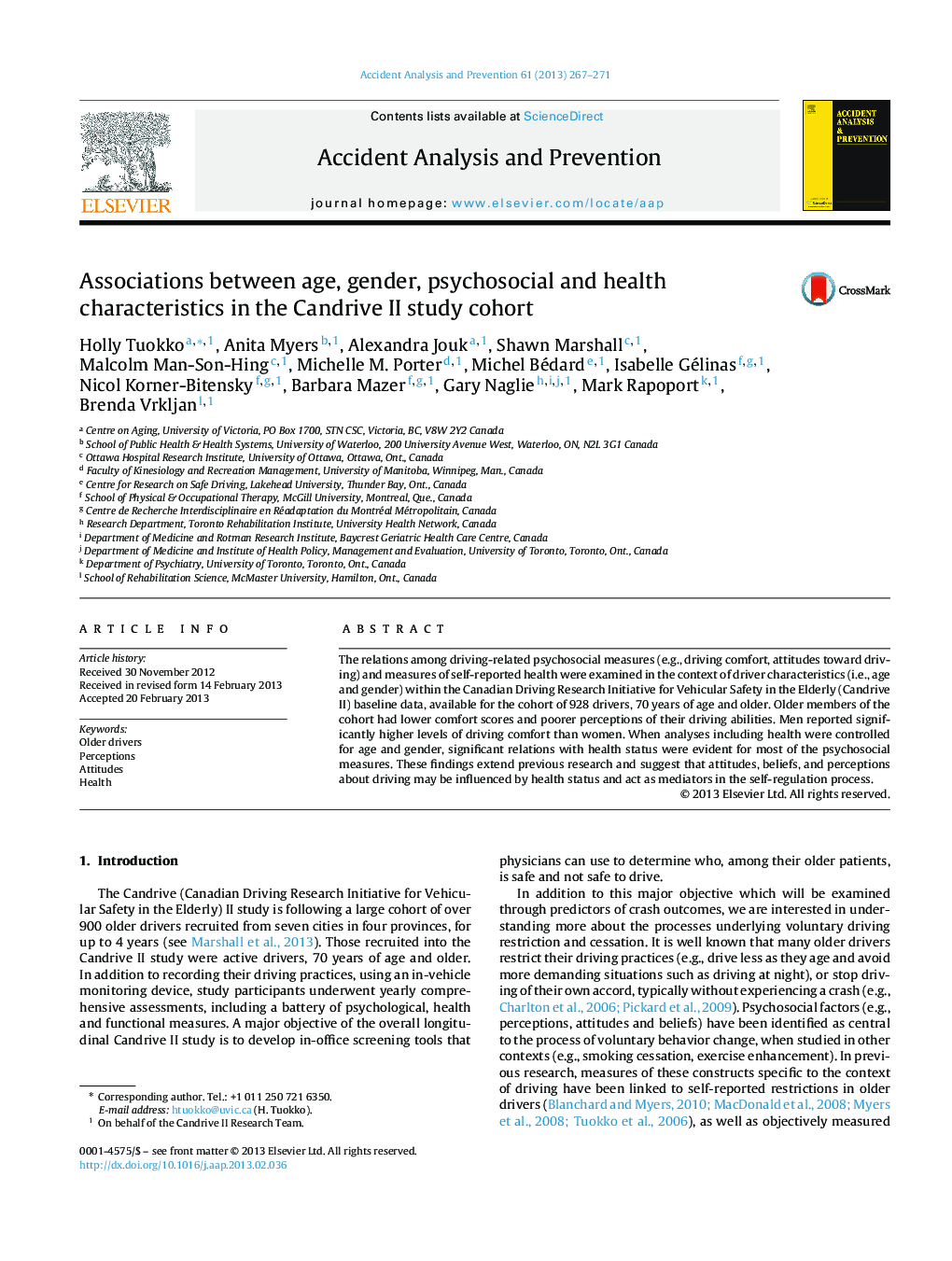| Article ID | Journal | Published Year | Pages | File Type |
|---|---|---|---|---|
| 572480 | Accident Analysis & Prevention | 2013 | 5 Pages |
The relations among driving-related psychosocial measures (e.g., driving comfort, attitudes toward driving) and measures of self-reported health were examined in the context of driver characteristics (i.e., age and gender) within the Canadian Driving Research Initiative for Vehicular Safety in the Elderly (Candrive II) baseline data, available for the cohort of 928 drivers, 70 years of age and older. Older members of the cohort had lower comfort scores and poorer perceptions of their driving abilities. Men reported significantly higher levels of driving comfort than women. When analyses including health were controlled for age and gender, significant relations with health status were evident for most of the psychosocial measures. These findings extend previous research and suggest that attitudes, beliefs, and perceptions about driving may be influenced by health status and act as mediators in the self-regulation process.
► Older drivers had more concerns about, and less comfort with, driving than the younger drivers in this sample of drivers aged 70 years and older. ► Men were more comfortable driving than women in this cohort. ► Driving comfort, perceived driving abilities, and negative views of driving were associated with self-rated health status. ► Fewer self-reported health symptoms in driving-relevant body areas were related to driving comfort and better perceptions of driving abilities. ► A greater number of health reported symptoms was associated with negative views of driving.
